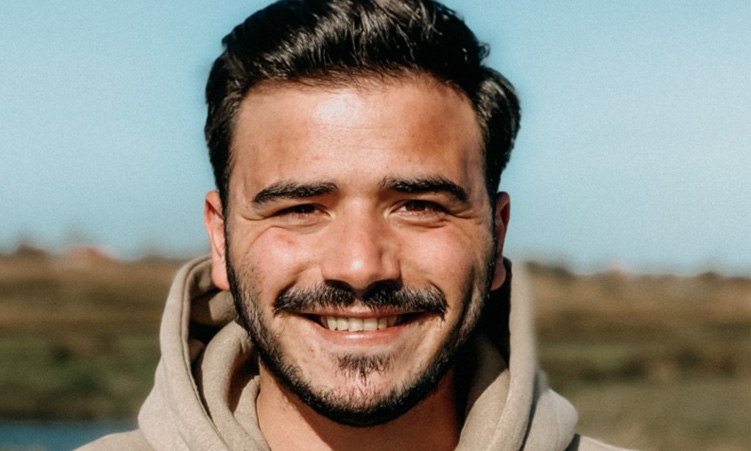Tucked away in one of Namibia’s largest informal settlements, Swakopmund’s DRC, is the German-funded Open Doors Education Centre (Odec), a private school operating under the auspices of the Tangeni Shilongo Namibia Association, offering an affordable education at just N$180 per child.
Founder and director of the non-governmental organisation (NGO) Volkan Sazli started as a volunteer with the German Red Cross in the DRC a decade ago, when he also got involved in the DRC School Project, locally known as the ‘container school’.
“After a year, I realised the need for sustainable support in the community,” Sazli says, emphasising the importance of creating long-term educational solutions.
With roots in Germany and a heart for Namibian education, Sazli set up a functional school system.
“We registered in Namibia to officially receive donations from Germany,” he adds, which became the foundation of the N$50 million Odec project in the DRC.
Odec started with the ‘container school’ for children who could not secure admission in government schools.
“We started with the DRC project, using container classrooms to accommodate pupils left out of the government system. But we wanted more – a proper school,” he says.
This vision culminated in the establishment of Odec, a school that began operations at the start of the 2024 academic year.
“We’ve invested N$20 million in construction so far. We’re now a kindergarten, preschool and a primary school up to Grade 3,” says Sazli, adding that the school plans to extend its offerings up to Grade 12 eventually, which will include a N$30 million centre at the location of the container school – in the heart of the DRC informal settlement.
For N$180 a month, pupils receive uniforms, meals and academic support with a class size capped at 25.
“Quality education is what we offer. We have qualified teachers for each class and language courses in German and Afrikaans,” Sazli says.
The school also focuses on computer literacy from a young age.
“We received 20 iMacs from a donor in Germany. We’re integrating information technology (IT) education into our curriculum from Grade 1,” he says, adding that computer literacy from a young age is crucial.
Sazli also highlights their Open Door Scholarship Programme which supports young adults in their higher education endeavours.
“We currently have 17 students studying at various universities, funded for their accommodation, tuition and fees,” he says.
Odec follows the Namibian curriculum strictly and plans future expansions to cater to growing educational needs.
Despite the challenges, Sazli remains dedicated to his vision: “Fundraising and maintaining operations is hard work, but we’re committed. Our focus is not just to solve problems but to prevent them.”
Sazli’s journey with Odec is interwoven with personal stories, like his friendship with a pregnant woman from the local community, which led to his lifelong commitment to her child’s education. The child was named Tangeni Shilongo, hence the name of the NGO.
Sazli highlights the local community’s commitment to education.
“People here need opportunities. Their serious approach to their children’s education is motivating. They are responsible parents,” he says, emphasising the need to provide opportunities and develop qualified teachers.
“Change is so easy when you have the right people. The money we receive is used to make a tangible difference, seen by our supporters overseas.”
Co-founder and director Theresa Rhode, who is also a social worker, highlights the “excellent” working relations with the rest of the staff.
“We are not acting like bosses. We are here to facilitate, not dictate. Our relationship with the teachers is based on mutual respect and trust,” she says.
“We know we can’t offer salaries like other private schools, but we’re committed to incrementally increasing them.”
Rhode points out that former children of the DRC project are now co-workers.
“Our own fruits, children we’ve nurtured, are now part of Odec. We’ve seen them grow and now they are contributing back to the community,” she says proudly, recounting the journey of a volunteer who has become a qualified teacher.
Odec has garnered support and enthusiasm from the local community and its leaders, with Swakopmund mayor Dina Namubes expressing her excitement and optimism about the new educational facility.
Namubes highlights the school’s modern amenities, including IT facilities and a kitchen intended for training women.
Future plans for the school include creating sport facilities.
“We have to groom our little ones so that they have access to quality education,” she emphasises.
Namubes underscores the significance of stakeholder collaboration in making such projects possible, pointing out the municipal council’s role in affording the land to the organisation.
According to her, the organisation’s efforts are part of Swakopmund’s broader goals, aligning with the Sustainable Development Goals, including zero poverty, no hunger and quality education for all.
Stay informed with The Namibian – your source for credible journalism. Get in-depth reporting and opinions for
only N$85 a month. Invest in journalism, invest in democracy –
Subscribe Now!







